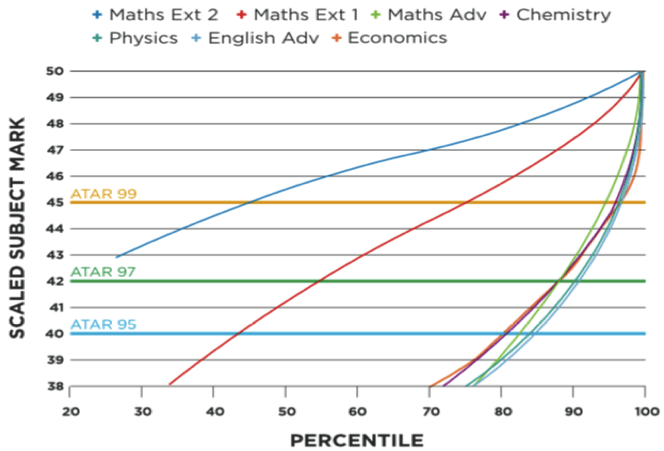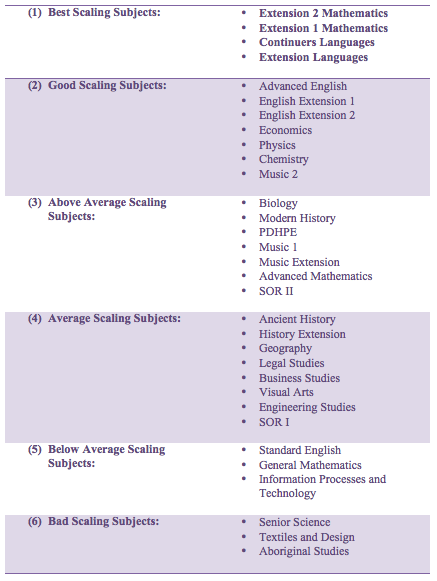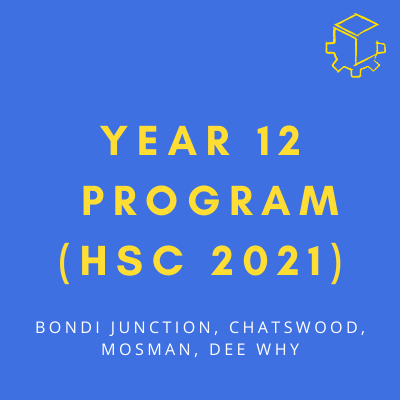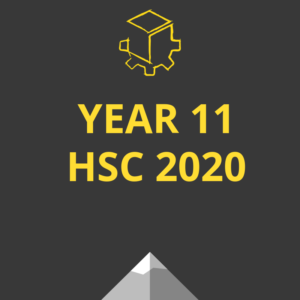Brief Introduction:
This will be the final of the three articles that I will have written to assist you all in achieving your dream ATARs. However of the three, this article will be the most important and beneficial, so if you have the time I suggest you read this carefully and thoroughly. I will begin with a brief anecdote to add some context to this article.
Compared to the rest of my grade at school I was never a typically strong student. In the second term of Year 12, our school gave every student in my year an estimate ATAR to let us know how we were all progressing. I had a meeting with the vice-principal, and he basically asked me what course I wanted to get into. I told him that I wasn’t sure yet, but perhaps law was an option. Then and there he abruptly told me that I had no chance of getting into law, and that my current estimate ATAR was 7 points under the projected average ATAR of our school. In short, people expected me to fail in reaching my goal.
Cut to the end of Year 12, and I’m standing on stage watching my name being engraved for outstanding academic achievement in senior school. I have been able to leapfrog the majority of my year and take a place among the elite. Thus my parents and many of my friends and teachers were extremely surprised, and a lot of people asked me if I was too.
The short answer was No.
After my ATAR came out, a lot of people were again surprised, and many questioned how I had so drastically improved in the span of a year. The answer was simply that I had played the HSC game, and played it well. However like any game, you can succeed much more easily, if you know all the rules. Thus in this article I will examine the rules of this game and break down the scaling of each subject.
“Top HSC students aren’t the ones who work the hardest, but the ones who work the smartest.”
This was my secret; I hope it can help you too.
** The ATAR calculation is a complicated equation and the views in this article are based on Harrison’s experience and cannot be used as a guarantee for predicting your result. **
How your ATAR is calculated
I believe the majority of you have a brief understanding of how your ATAR will be calculated. That HSC marks are comprised 50% from your school assessments (a set of 5-6 assessment tasks including half-yearly and trial examinations) and 50% from a common external HSC exam paper.
To succeed in the HSC game, it helps to know the rules in more detail. There are in fact 6 stages to calculating your ATAR that you should be familiar with:
- School assessments are used to determine RANKINGS
- Common HSC exam – all students sit the common paper
- BOS determines HSC assessment and HSC exam marks
- UAC scales each score to a score out of 50
- Score out of 500 determined from your best 10 units
- ATAR is determined based on percentiles
Now that we know the rules of this game in more detail, we can use this to our advantage.
Looking at these 6 rules, the first obvious thing that needs to be discussed is the importance of RANKINGS.
Rank Counts for Everything
A misconception that many parents and students have is that school marks actually count for something. So I will set the record straight here.
“Your ranking in each subject is all-important. Your school assessment marks are only important insofar as they determine your ranking in the course; they have no absolute value.”
The process of how the BOS uses your RANKINGS are as follows:
- The school establishes a ranking of students within the school.
- The BOS uses the school’s performance in the common paper to calculate what marks should be given as HSC Assessment marks.
- The HSC Assessment Mark differs from your internal school assessment mark in that it is moderated, or aligned with the school’s performance in the common paper.
Here are some examples to make this clearer:
Example 1:
Let’s say you were ranked 1st in your school in Economics, and you scored 90% in the common HSC exam. Now suppose from your school the person who performed the best in the common HSC exam scored a 98. This would mean that your 1st place rank would be effectively worth 98, and you would receive the following results:
Subject: Economics
HSC Assessment Mark: 98
HSC Exam Mark: 90
Thus your final mark would be an average of the two scores, i.e. 94.
Example 2:
Now suppose that you were ranked around middle in your school for Economics, and the average of your school in the common HSC paper was 85, then the average HSC mark is also worth 85. So let’s say you managed to scored 91 in the common HSC exam, but your rank was average, then you would receive the following results:
Subject: Economics
HSC Assessment Mark: 85
HSC Exam Mark: 91
Then your final mark would be an average of the two scores, i.e. 88.
Therefore from the above two examples we can see that your raw school marks do not have a direct bearing on your HSC Assessment Marks. The two points that I want you to take away from this section are:
1. Rank in school counts for everything.
- It can either drag you down, or give you a failsafe during the HSC. Having a good rank can ensure that you still receive a decent mark despite a bad HSC Exam Mark.
- This may seem unfair, but it is the reward for staying committed through all of year 12.
2. Going to a good school means that the distribution of marks is fairly high
- If you go to a good school, and you have a decent rank, you can be fairly certain that for at least half of your HSC Mark (The HSC Assessment Mark) – you will score relatively well.
- If you go to a lower academically ranked school, make sure that you stay within the higher ranks of your school, or else your cohort will drag you down.
Not All Subjects are Created Equal
The typical wisdom for students is to just study as hard as possible for every subject, but due to time constraints in the HSC year, that is just not possible. Instead you will find it much more advantageous if you pick your battles. Strategically allocating time to different subjects can give you the edge over students who study many more hours than you do. To better understand this, a brief explanation of scaling is needed.
What is Scaling
Essentially, scaling is the process of standardizing marks so that they can be compared across subjects. Thus the common follow up question to this would be why scaling is needed?
The simple answer to this is that, without scaling, it would be impossible to compare a 92 in 4u Mathematics, to a 92 in Photography. It’s similar to converting currency. When people from other countries come to Australia, how do we know how much their money is worth? We simply convert their money into a single currency (AUD) that is nationally accepted in Australia.
In the same way, the UAC converts all HSC marks into a single UAC score and totals the top 10 units including 2 compulsory units of English. Thus to continue our analogy we can see that not all subjects are equal, with the harder subjects having the highest “exchange rate”.
Now that we have established this, we need to know the scaling of the different subjects to be able to pick our battles accordingly. On the next page I have listed out some common HSC subjects in a subject hierarchy to give you a better picture.
Subject Scaling Hierarchy
** This table is based on the average scaling of subjects accrued from ATAR calculators.
How can I maximize my ATAR (Strategy)
Now we have the information we need to strategically allocate our limited time to ensure maximum results with minimum effort. However before we develop this strategy I would like to clarify two points, that some of you may have questions about at this point in the article.
- Doing relatively ‘good’ or ‘bad’ scaling subjects, does not give you any advantage or disadvantage. Rather the students, who end up with the top ATARs, are the ones who have been able to strategically allocate the correct amount of study time to each of their subjects. They are the students who have had a well-balanced approach to the HSC, and who have understood their strengths and who haven’t disregarded their weaknesses.
- Following on from above, obviously all students are different. So I believe the best way to illustrate the HSC Game strategy is through using an example student.
Example Student:
Let’s say Hannah does the following subjects:
- English Advanced (2 units)
- Mathematics Extension 1 (2 units)
- Mathematics Extension 2 (2 units)
- Visual Arts (2 units)
- Modern History (2 units)
- Economics (2 units)
There are a total of 12 units. The 10 units that will eventually count are the 2 units of English, and her next best 8 units.
Hannah’s strongest subjects are her Mathematics and Economics. Her Modern History and Visual Arts are average. English Advanced is her weakest subject.
Her ATAR goal is 95. She attends a school that is ranked average, academically in the state.
AT THE BEGINNING OF YEAR 12 (STANDARD STRATEGY):
For any student at the beginning of Year 12, or for any student who has not yet established a proper study plan, the best thing to do would be to study according to the units. For Hannah, English Advanced is 2 units out of a total 12 units (17%). Thus out of her total study time, she should be spending around 17% of her time on English.
This is quite self-explanatory and an intuitive thing to do for most students. However it is how a student strategically adjusts his/her time allocation according to their results later on that will separate them from the rest of the pack.
Let’s say Hannah has finished her first two rounds of assessments, and is now deciding how best to prepare for her trials.
Her current ranks are:
- English Advanced (2 units) = 89/160
- Mathematics Extension 1 (2 units) = 3/84
- Mathematics Extension 2 (2 units) = 10/60
- Visual Arts (2 units) = 20/40
- Modern History (2 units) = 25/40
- Economics (2 units) = 20/50
HANNAH’S IDEAL TRIALS STRATEGY:
English Advanced:
This is the only subject that is guaranteed to count for Hannah, so she should be allocating more time into English. In order for her to achieve her goal ATAR, she would need to be ranked in the top 15-20% of her cohort, i.e. in the top 32 of her year.
Mathematics:
These are Hannah’s strongest subjects, and also her highest scaling subjects. In order for her to achieve her goal ATAR, she would need to be:
- In the top 90% of Mathematics Extension 2, i.e. ranked at least 54/60.
- In the top 50% of Mathematics Extension 1, i.e. ranked at least 42/84.
As you can see, her current ranks are much higher than needed. Say she spends 40% less time on her mathematics, and her ranks for both subjects drop by 30. She would still comfortably be achieving the required mathematics marks to reach her goal ATAR, whilst perhaps giving herself an extra hour every day to spend on her other subjects.
Visual Arts/Modern History:
These are Hannah’s two worst scaling subjects, and also her two weakest subjects after English. Again it would be much better for Hannah’s overall ATAR, if she re-allocated some of her time spent studying mathematics, and used it to focus on improving her ranks in these two subjects. For some context, to achieve her goal ATAR Hannah would need to be ranked:
- In the top 10% of Modern History, i.e. be ranked at least 4/40.
- In the top 8% of Visual Arts, i.e. be ranked in the top 3.
Economics:
In order for her to achieve her goal ATAR, she would need to be ranked in the top 15-20% of her cohort, i.e. be ranked in the top 10. So despite her decent rank, she would also need to allocate some of her time spent on her Mathematics into her Economics to improve her rank.
Breakdown of the main advice I’m giving you:
- You have a limited amount of time, so use it wisely: a. Focus on improving the subjects, which would increase your overall ATAR the most. For example, say you were on par to achieving 90 in both 4U Mathematics and Advanced English. Increasing your 4U marks to 95 would have an equivalent ATAR increase of less than 1. Whilst increasing your English marks to 95, would have an equivalent ATAR increase of around 2 points. “In short, further improvements in lower scaling subjects, produce proportionately larger gains in your ATAR”.
- Be an all-rounder: Many students unconsciously tend to study the subjects they like the most and neglect subjects they are weaker at. This is disastrous from an ATAR perspective because it leads to over-studying subjects in which you are already receiving relatively highly scaled marks and understudying the very subject in which there is the greatest scope to boost your ATAR.
- Study smarter not harder: If you can take this advice which the Coaches and I consistently remind students at HSC CoWorks, you will find that your time spent studying will be much more effective. I have friends who have studied 6-7 hours a day (outside of school), and tired out in crucial times during the HSC year. Studying effectively ensures you get the most return for your effort and prevents you from burning out. Eg. Complete practice exams, push yourself outside of your comfort zone, ask lots of questions..
Briefly how this strategy helped me
Like I said at the start of the article, I wasn’t doing very well at the beginning of year 12. The main reason being that I was spending too much time trying to come first in Mathematics, whilst basically spending no time on my English and Chemistry.
I realized that I was picking the wrong battle to fight. Coming first in mathematics would require me to study at least 2 hours of math a day and I knew that based on the strength of my cohort, being first as opposed to average, would only equate to a small increase in my overall ATAR. So I tactically decided to allocate these 2 hours to my English and Chemistry.
I knew that I would drop several ranks in Mathematics, but it was a sacrifice I was willing to make, as I knew it would be better for my ATAR in the long run. In fact, I ended up dropping 20 places in 4U, but managed to increase my Chemistry rank by 30 and my English rank by 60, and when my ATAR came out, I leapfrogged a lot of students who traditionally outperformed me.
Conclusion:
This has been quite a long article, so I thank those of you who have taken the time to read it. I know a lot of the knowledge, which I have imparted, may seem a little controversial; as most students believe honest hard work alone will ensure that they achieve good results.
Honest hard work is crucial to the HSC, but having a little strategy and understanding scaling can really give you a strong competitive advantage, especially over those people who have the time to study 6-7 hours a day.
To attain the best mark is not about being the smartest or most talented kid in the room, it’s about being the best at playing the HSC game. Remember it’s about studying smarter not harder.[/one_half]













